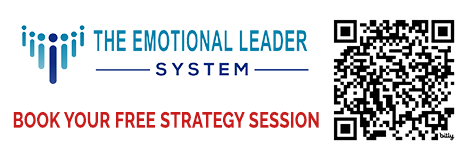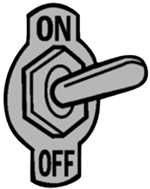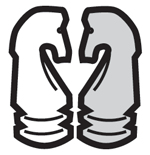Powerful Lessons in Personal Change
Half the leaders I have met don’t need to learn what to do. They need to learn what to stop. – Dr. Marshall Goldsmith, Mentor
I hope that you are extremely successful, that life is all you’ve imagined it could be, and that you have emotional freedom and an invincible love of life. I truly do!
If, on the other hand, you’re wanting some guidance to recognize, use, understand, and manage emotion and strengthen behaviors that may be stopping you from being where you want to be, let me assure you that the seeds of greatness are within you to be manifested now. How can I know this? Because the seeds of greatness are all around us. It is simply up to you to first believe that, and then to take the right action steps that will move you to the next level of where ever it is you want to go. Emotion management and behavior change are perhaps the key – the most vital parts – of that process.
Let’s talk for a few minutes about some things you want:
- You want to be a successful and effective leader.
- You want to achieve personal and corporate goals leading your team through difficult challenges.
- You want to earn a huge income to provide a comfortable lifestyle for you and your family.
- You want recognition and affirmation of the good job you have done or are doing.
- You want to be able to get along well with your colleagues at work and maintain good relations at home.
- You want to fulfill your life goals with passion and purpose.
Personal Online Coaching will help you get everything you want! It combines research from my Ph.D. study into the emotional intelligence of managers in Singapore, plus evidence-based emotional intelligence constructs and cognitive-behavioral insights with practical, hands-on emotional know-how. I’ve been through the ‘school of hard knocks’ too! Plus you get all the resources available to you in the Emotional Leader website, including the coaching forum where your specific questions will be answered.
You know what? You are much more capable than you think you are. How do I know? Because I’ve had to learn to stop annoying behavior to enjoy the success I have achieved. I’m constantly testing and measuring what works and what doesn’t. And if you’re prepared to follow The Emotional Leader Program (ELPro) for behavior change, you’ll discover the faster track to success as an emotional leader. You will cultivate emotionally intelligent behavior for effective leadership.
The process that I will coach you through is the same one I have used with leaders in companies around the world. This is a proven science-based process. If you stick to my system, you will reach a new level of self-understanding and greater effectiveness in your personal and professional life.
By following a step-by-step process, my system will help you stop bad behavior once and for all and gain the confidence you need to create your vision, build your emotional leadership habits and live the lifestyle of your dreams.
Eight compelling reasons why you must choose
Personal Online Coaching!
Discover how to:
- RECOGNIZE EMOTION in yourself and others
- EXPRESS EMOTION using your emotional style
- GENERATE EMOTION to support thinking
- MATCH EMOTION to problem solve
- KNOW EMOTION to communicate awareness
- PREDICT EMOTION change
- MANAGE EMOTION to influence others
- MASTER EMOTION to enjoy unlimited G.R.O.W.T.H.!
About Your Coach
A bit about me – Mike Gosling. I’m the founder of EmotionalLeader.com and my organization, Gosling International, the world’s fastest-growing provider of emotional leadership programs centered on applying your emotional intelligence to help you develop and use eight emotional leadership habits. The implementation of my coaching programs are guided by the stakeholder centered coaching practices of Dr. Marshall Goldsmith, one of the most well respected behavioral coaches and thinker on leadership in the world. I coach business owners, entrepreneurs, CEOs, senior level managers and staff in corporations, and individual professionals to strengthen their emotional intelligence and improve leadership behavior so they can fulfill their potential.
World renown behavioral coaches and mentors, Marshall Goldsmith, Frank Wagner and Chris Coffey and have written (2003):
The role of the coach has always been to get the best out of others’ performance, whether on stage, on the playing field, or in business. If leaders are to improve their own practice of leadership, they need leverage. A coach adds value to the degree that he, or she, can help the leader gain this leverage. Helping speed up the learning curve into productive behavior is the main value any coach can provide.
I have now personally coached and mentored more than 30 clients from different nationalities in Australia and South East Asia and taught hundreds of people in seminars and workshops. I’m now training emotional leaders globally to succeed through behavior change – To get from where you are to where you want to be! I call this the ELPro, which is based upon the principles of EASEQuadrant, a systematic method of learning to help you develop and practice emotional leadership habits.
[Leaders we admire] all build relationships and inspire us to give our best. Even though managers can be leaders it is not their managerial talent that inspires you to think of them as leaders. Usually, it is an interpersonal skill, a behavior that is expressed in such a way that it elicits our choice to follow, to be influenced, to admire unselfconsciously. – John Nirenberg (2003)
The Personal Online Coaching program, which is available online only through my EmotionMatters.com website is an exclusive suite of resources that is making a positive, measurable, long-term difference in the lives of clients around the world. Will my next client be you?
If you prefer an online solution to your coaching needs, where you can speedily access your emotional intelligence tests and course material to work on in your own time and pace – this is it! I would feel excited and privileged to have you on board. My behavioral coaching program can help you manage your emotions, improve your leadership behavior, and guide you to achieve the success that you deserve and that has always been waiting for you.
My schedule is able to accept a limited number of committed, self-directed, and motivated people to work with me this year. Let’s get started immediately. I’m excited to work with you!


 People high in this emotional wealth habit typically …
People high in this emotional wealth habit typically … People high in this emotional wealth habit typically …
People high in this emotional wealth habit typically … People high in this skill of emotional leadership typically …
People high in this skill of emotional leadership typically … People high in this skill of emotional leadership typically …
People high in this skill of emotional leadership typically …